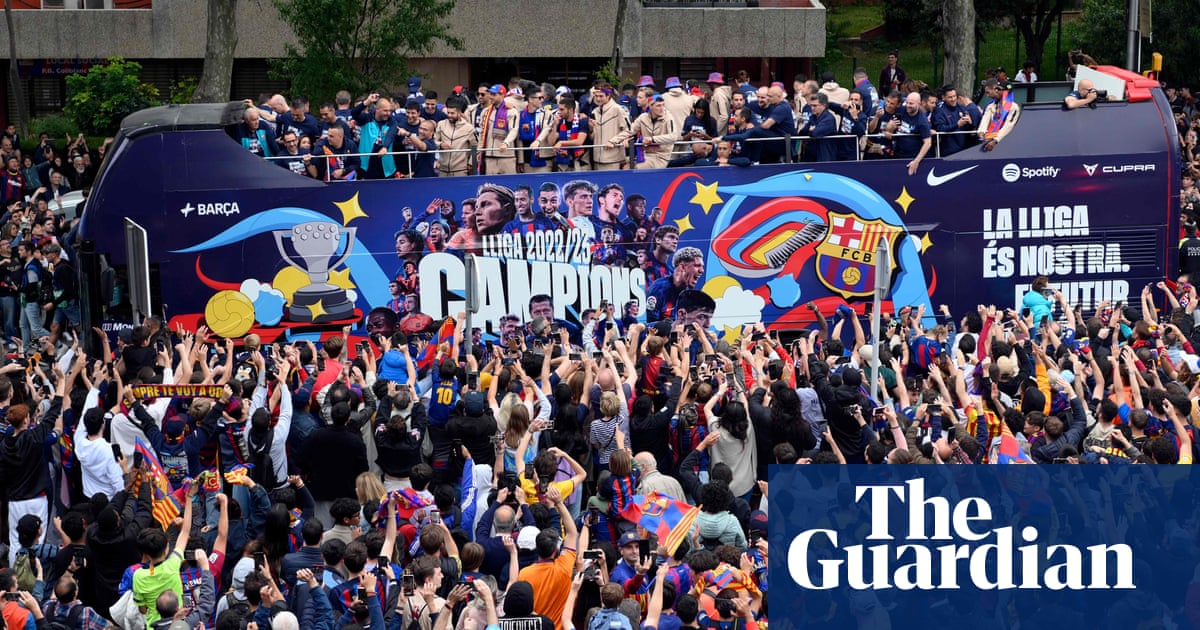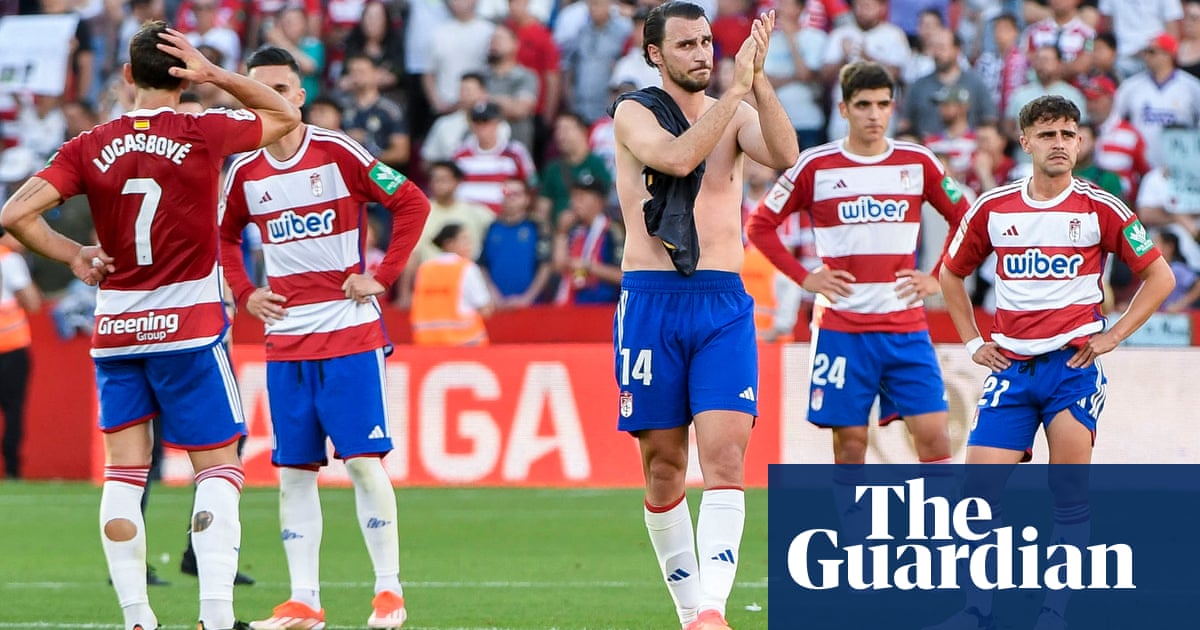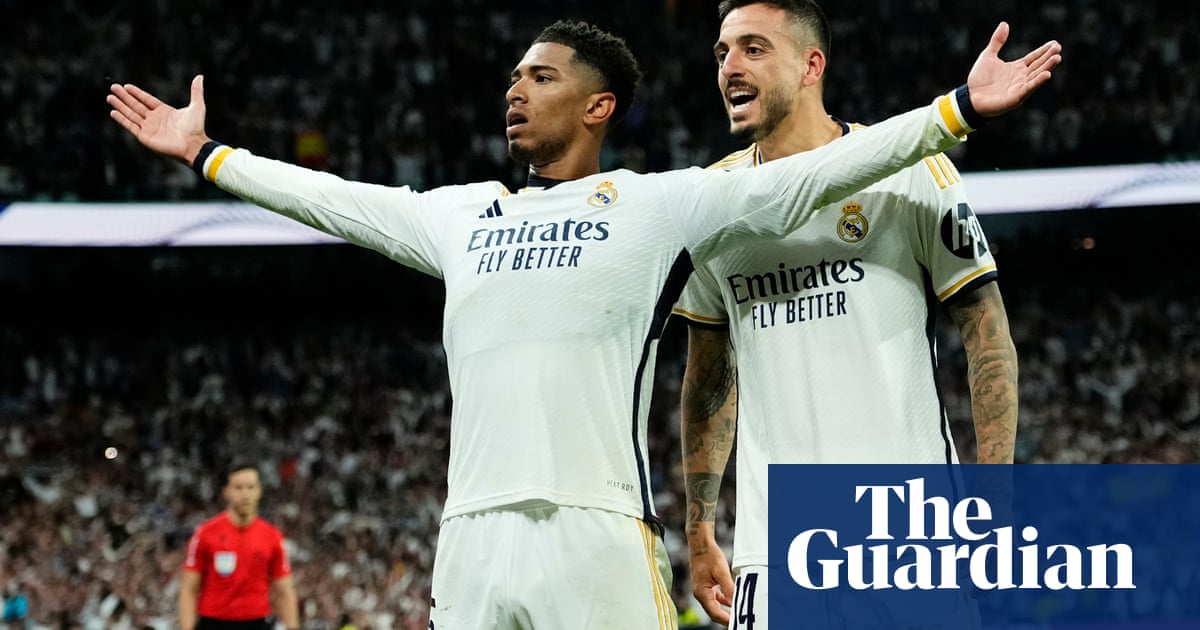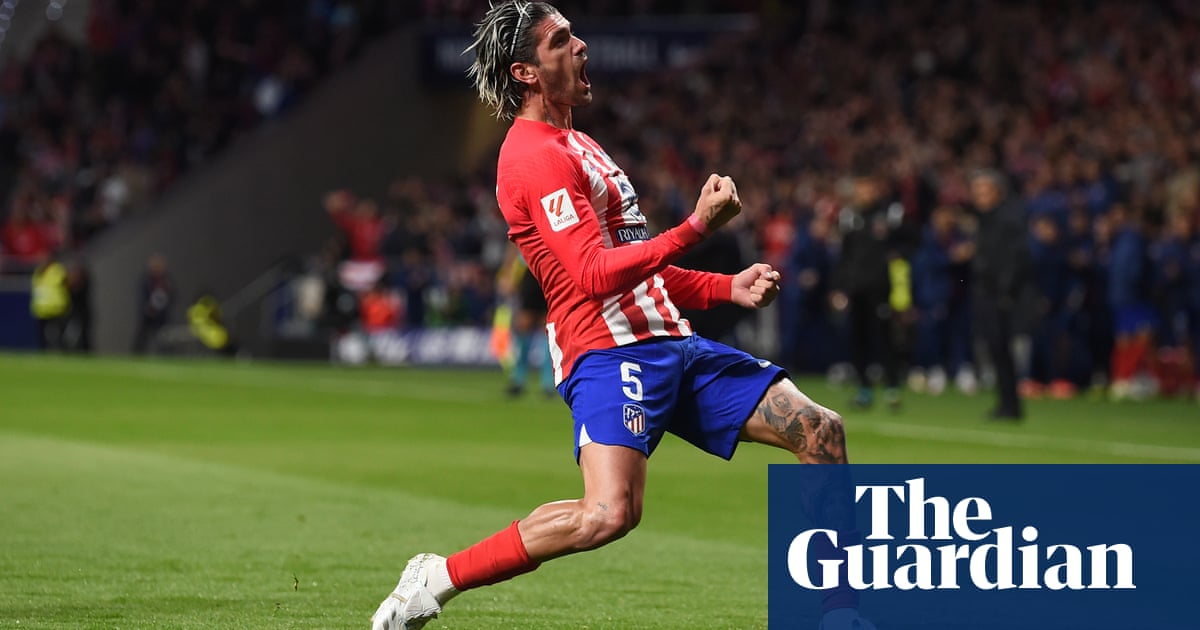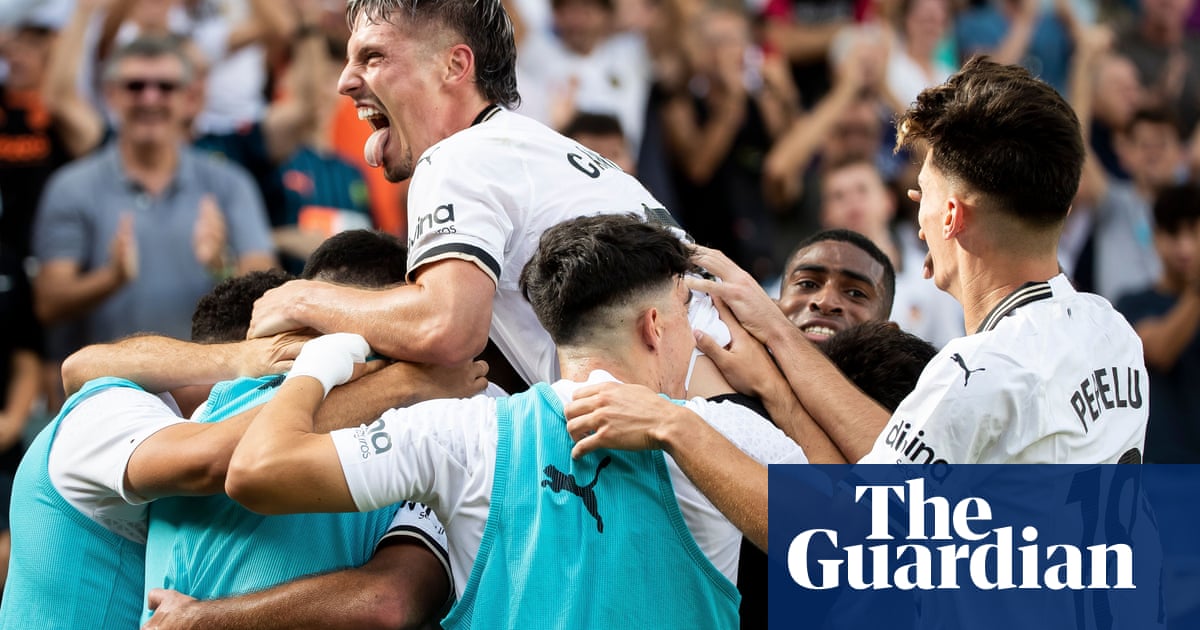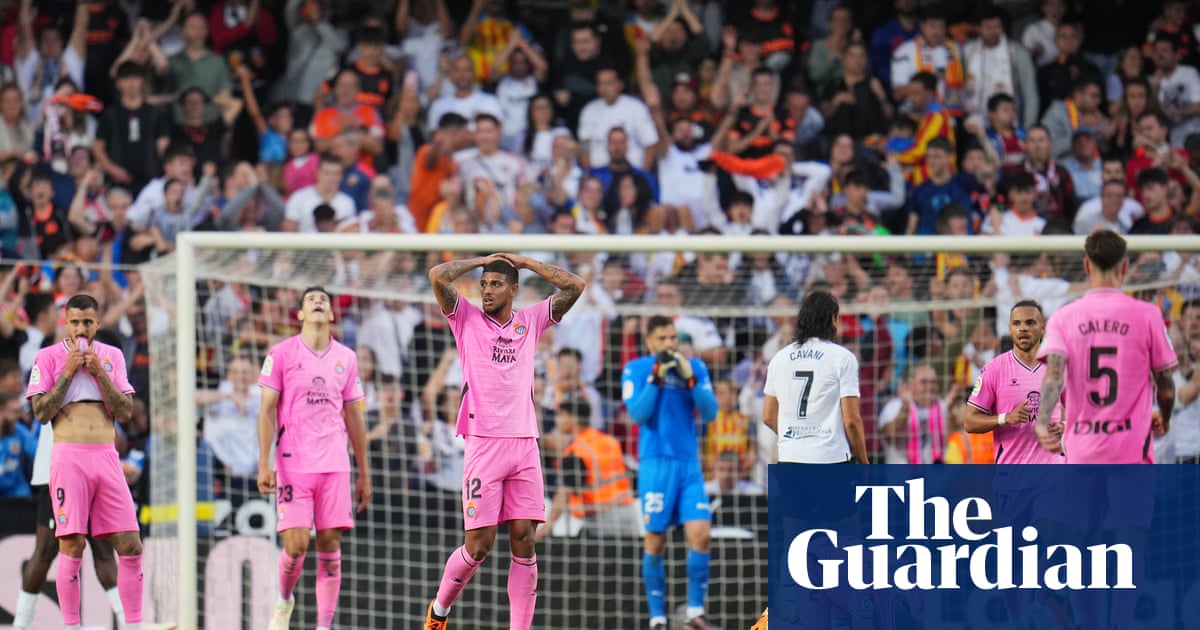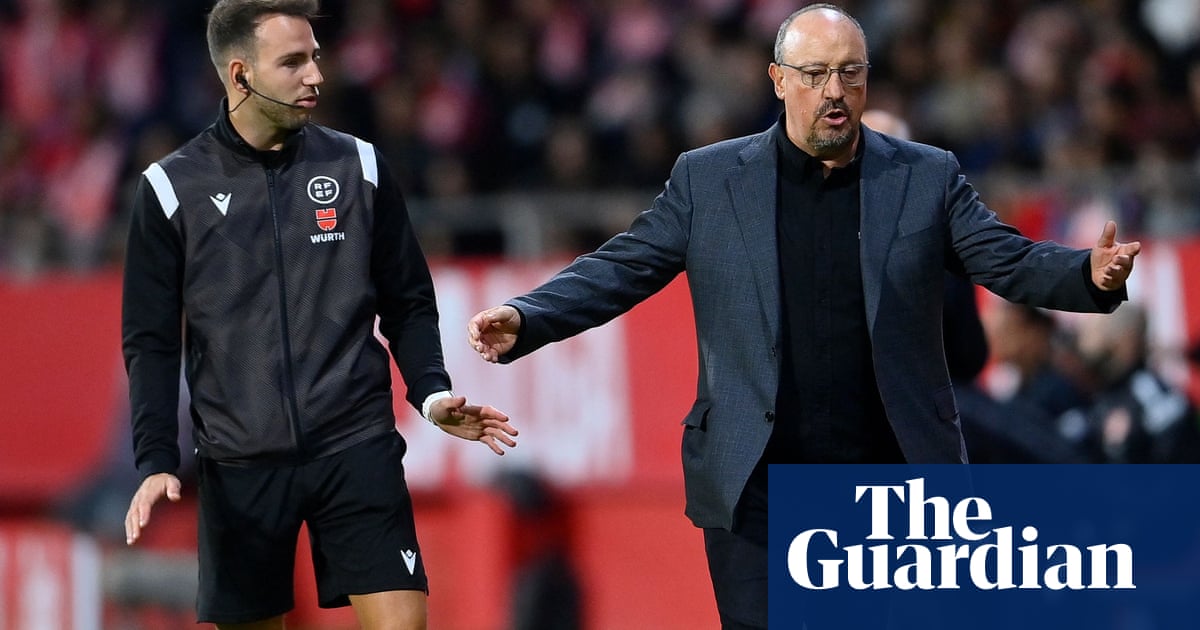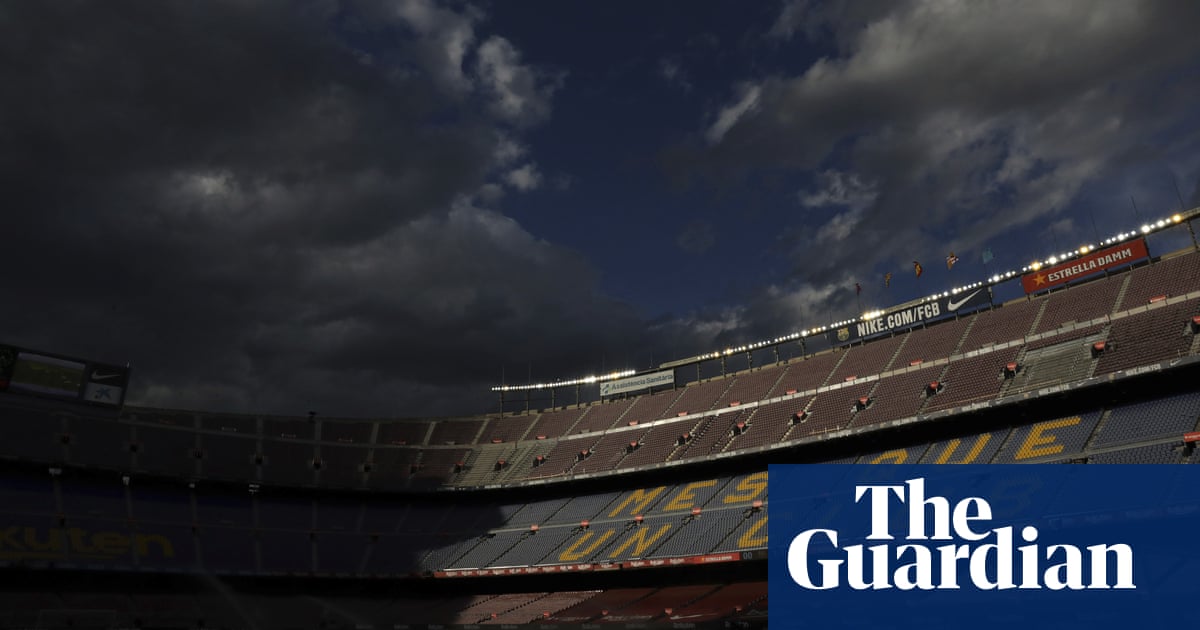
“Today we talked about Cádiz,” said Xavi Hernández, Barcelona’s coach, and the only person there taking questions. “We talked about Cádiz, we watched a video on Cádiz, we did some Cádiz set plays, everything we did is Cádiz. We took a retreat in Cádiz.” Cádizian isolation, he called it, and it would be a good choice. A festival of parody and rebellion, serious about being silly – carnival was just beginning there, over 1,000km south-west of Catalonia, Europe’s most ancient city becoming its most enjoyable, too. A lot more fun than where Barça actually found themselves, that’s for sure.
“I try to focus on the football, but this club has these things,” Xavi said. Barcelona faced Manchester United and then Cádiz this past week; they also faced something much more serious, as did the entire Spanish game. The story broke on the eve of the Europa League match against United: Barcelona had paid €1.4m to the vice-president of the Spanish referees’ committee, the CTA, between 2016 and 2018. That was just the start and it’s not finished yet. With every new revelation, with every new thing that was said – and not said – it got worse. In total, the Catalan referee José María Enríquez Negreira received €7m over 20 years. None of this is disputed.
It started accidentally, as these things tend to, with a tax inspection. Three payments of €532,728, €541,752 and €318,200 were revealed, made to a company owned by Negreira, who was a referee between 1977 and 1992, and then vice-president of the referees’ body from 1994 to 2018. The tax office passed the details to state prosecutors, an investigation into corruption started on the grounds there was no evidence of the services mentioned on the invoices being rendered.
Barcelona initially declined to comment but once the story was out the president, Joan Laporta, recorded a video confirming the payments while insisting that Negreira worked as an adviser, preparing reports and guiding players on refereeing issues – something Laporta described as “very normal”. He also said: “It’s not chance that this comes out now, when Barça are doing well.” If that old line was as familiar as it was weak, Gerard Piqué wasn’t far behind, turning to the one about things coming out of Madrid. The investigation has been under way since May. The story was broken by Què t’hi jugues: SER Barcelona.
Negreira had been called to testify and could not provide evidence he had provided any service – although his son, a refereeing “coach” could, in the form of videos and written reports. Negreira told investigators he provided “verbal consultancy”. He said that he had never benefited Barcelona, nor been responsible for assigning them referees. “FCB wanted to ensure that refereeing decisions were not taken against them. That is to say, that everything was neutral,” the inspectors’ report said.
The impact was immense, many scrambling to escape the blast. The first thing the referees’ committee said in the statement was that Negreira had not been in the post since 2018, when there was a change at the federation, Luis Rubiales taking over as president. They said referees sign a code of conduct and, while not illegal, working for a club while also holding a post in the CTA would certainly break it. The current referees’ head, Luis Medina Cantalejo, said he would put “both hands in the fire” to defend referees’ honesty and added no one really knew what Negreira did, that his role had not been especially relevant.
More details followed beyond those initial three years (the only ones the tax office are investigating). The relationship goes back to at least 2001, taking in different presidents and regimes: Joan Gaspart, Joan Laporta, Sandro Rosell, and Josep Maria Bartomeu. At best, those men had inherited a relationship they did not terminate. Gaspart denied any knowledge. Laporta didn’t speak again, even when Bartomeu said that Laporta had increased Negreira’s fee. Payments were managed via a company owned by a now deceased club director, subsequent reports revealed.
Bartomeu cut the payments in 2018 because of the club’s financial crisis, he said. Which is also the year Negreira left the CTA. When he did, there was a reaction. Negreira wrote to Bartomeu telling him he took this as a personal insult, an indication that he no longer owed loyalty to the club or, he added, the men who had presided over it. He demanded over €200,000 in outstanding payments, invited the then president to reflect, noting that a scandal would not be good for the club and threatening to reveal all the “irregularities” he saw. He did not, it seems, follow through.
The question is: what irregularities?
That’s the question, but there appear so many, all working towards that, all intertwined. So many things that don’t fit. Or, that only fit an awful scenario. Starting at the very beginning: why pay a former referee and vice-president of the CTA? In return for what? What did Barcelona get? What did they think they were getting?
What does neutrality mean? How and why can you buy it? If you’re paying that for neutrality, what does that say about you, them, and everyone? If he didn’t have that much control, why pay at all? If he was irrelevant, how did he get so far? If he was a charlatan, as some have suggested, he succeeded: how? If he made broken promises, they were still paid for. Why would you do that? If no one actually promised anything, still less delivered it, what were they paying for? If the club were victims, why did they let that happen? Is it coincidence that the year they stopped paying him was the year he was pushed out of the CTA? How did it get through compliance, through the audits?
It is hard to get away from this: seven million euros. Seven million euros for consultancy? For reports? How good were these reports? Seven million for neutrality? “I hate to think what he would charge for bias,” Jorge Valdano wrote. Could the numbers on balance sheets not mean anything? Seven million, meh, so what? Could those numbers on cards, penalties and more over the years, just statistical quirks, a reflection of the football, actually mean something? Here’s another one, raised by the investigation: why wasn’t Negreira rich, why doesn’t he have more assets? Where did the money go? Why was he demanding more?
Why did no one think this was a bad idea, if only for fear of how it looked? Caesar’s wife must not only be pure but look pure, the phrase goes. Other clubs do indeed have refereeing consultants, usually former officials. Why not do that, rather than the guy near the top? If no one at CTA knew what he did, why not? If he didn’t really do anything, if he was irrelevant, what was he doing there? Why hasn’t the president of the CTA back then, reportedly devastated, said anything? Why hasn’t Ángel María Villar, the then president of the federation? Why have none of the other clubs, so swift to release statements whinging about just about anything, so keen to accuse and see conspiracy, uttered a single word?
How far does this go? Who else might appear? Are Barcelona the only club? Where does it end? How much more is to come? How much worse can it get? And then what? In purely sporting terms, it is possible that the answer to that is nothing: as it stands, these apparent infractions are time-barred. And so, whatever happens, what’s left is this, this … smell. The vice-president of the referees’ committee paid €7m by a club. What is left is an inescapable feeling of wrongness. That this will go away but never really go away.
“These things can’t happen ethically nor aesthetically,” said the president of the league, Javier Tebas. That’s the very least of it. Asked about the case, the former Barcelona coach Quique Setién said: “As the years go by, you realise that you can no longer change the things that are rotten. In this sport there are lots of people who have never kicked a ball in their lives but have benefited well beyond their value. Everyone knows that where there is money there are people with hidden interests and a lot of corruption.”
Xavi said: “I would rather go home than win through cheating.” The pre- and post-match press conferences saw him fielding questions others wouldn’t answer, while preparing for Sunday night’s game against Cádiz, seeking isolation from it all. Barcelona won 2-0.





